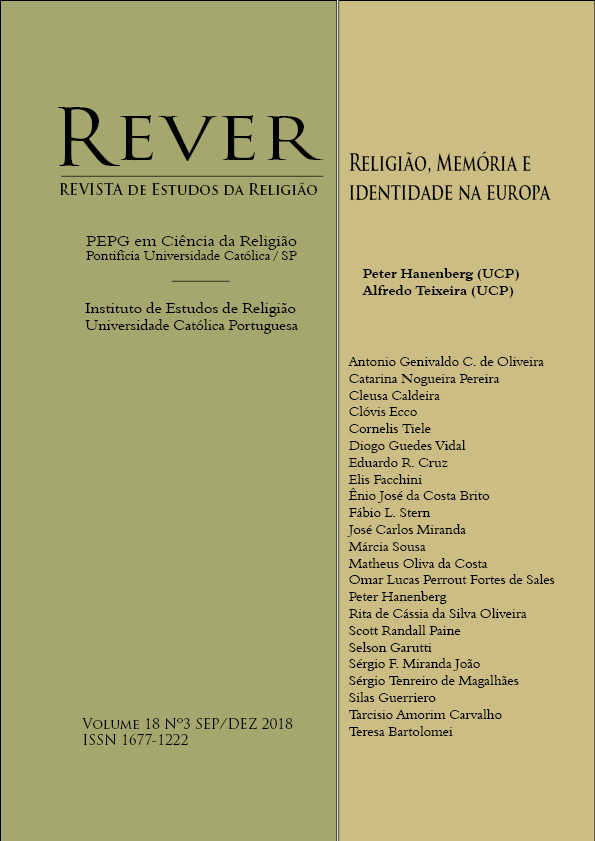Theological Foundations of Politics: Rehabilitation of the Political Source of Subjectivity in Post-Modern Times
DOI:
https://doi.org/10.23925/1677-1222.2018vol18i3a9Keywords:
Post-modern nihilism, Antisystemic thinking, Political source, Vulnerable subjectivity, Empty center, (Inter)subjectivityAbstract
With this text we seek to make explicit the theme of politics as an action of subjectivity below and beyond the regulation of the secular state, based on the theological work of Carlos Mendoza Álvarez. Without entering into the debate on "political theology," one describes the constitution of the political action of subjectivity capable of establishing a habitable world for all people, that is, human empowerment to put an end to the violence that threatens the future of humanity and of the planet. In the intersection of postmodern nihilism with antisystemic thinking, a path is suggested for overcoming intersubjective violence from the immanence of history. With this nihilistic and antisystemic approach, the "empty center" is accessed as the source of the political action of subjectivity. This "empty center" designates that redoubt that no one can seize without destroying itself, that is, it reveals itself as the Loving Source, origin and destination of all subjectivity. This "empty center" as the original source of the political action of subjectivity appears in history linked to the virtue of charity, which is concretized in the life of the righteous and the forgiving victims as the only possibility of redemption in postmodern times. It is thus described the theology of the imagination capable of enabling subjectivity to overcome inertia and waiting for the miraculous rescue that classical theology has led us and thus to cultivate active hope in the heart of history.
Downloads
Published
How to Cite
Issue
Section
License
Authors who publish in this journal agree with the following terms:- Authors retain copyright, but grant the journal the right of first publication, with the work simultaneously licensed under the Creative Commons BY-NC License.
- Authors are authorized to assume additional contracts separately, for non-exclusive distribution of the work published in this journal (e.g., publishing in an institutional repository or as a book chapter), as long as with acknowledgment of authorship and first publication in this journal.


